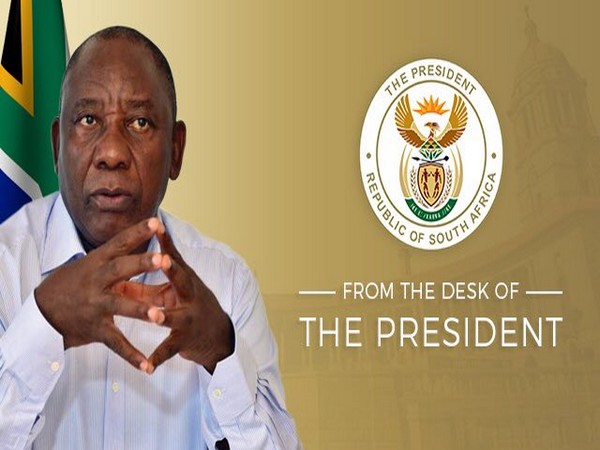Ramaphosa Urges UN to Enforce Global Law, Reform Security Council at UNGA-80
Ramaphosa warned that the global rules-based system is “profoundly fragile” and under growing scrutiny as the UN struggles to deliver on its mandate.

- Country:
- South Africa
President Cyril Ramaphosa has used his weekly newsletter to call on the United Nations (UN) to actively enforce international law and human rights standards as the world body marks the 80th anniversary of its founding charter. His remarks come ahead of the 80th session of the United Nations General Assembly (UNGA), taking place in New York this week, under the theme: Accelerating Global Progress Through Intergenerational Collaboration.
UN at a Crossroads
Ramaphosa warned that the global rules-based system is “profoundly fragile” and under growing scrutiny as the UN struggles to deliver on its mandate. He pointed to worsening global conflicts, underfunding of peacekeeping operations, retreating global health financing, and inadequate action on climate change as pressing failures.
“At a time of widespread poverty and underdevelopment, when human rights are under threat worldwide and where geopolitical tensions are creating instability across the globe, advancing multilateralism is more critical than ever. If the global, rules-based system is to have practical meaning, the UN must exercise its leadership role of global governance,” he said.
The Security Council Problem
Ramaphosa argued that the UN’s biggest obstacle lies in the structure and operation of the Security Council, which has remained largely unchanged since the Second World War. The five permanent members (P5) — the United States, United Kingdom, France, Russia, and China — continue to hold veto powers that allow them to block collective action.
“These five permanent members effectively make decisions on behalf of more than 85% of the world’s population living in countries of the Global South. They continue to use their veto powers to paralyse collective action and prevent timely responses to crises, even in the face of clear violations of international law,” he said.
South Africa has consistently demanded Security Council reform to reflect today’s global realities. Proposed changes include expanding permanent membership, improving regional representation, and restricting the use of veto powers. Ramaphosa said these efforts have “stalled for too long and must be reinvigorated with urgency.”
Championing Reform at UNGA-80
South Africa’s delegation to UNGA-80 will continue to push for a more democratic and inclusive UN. Ramaphosa stressed that the UN must prove that multilateralism is alive by matching its words with action on peace, human rights, and sustainable development.
“The current composition of the UN Security Council and its record of decisions seriously undermine the spirit of global cooperation and weaken the UN’s commitment to neutrality and its legitimacy,” he warned.
A Call for Renewed Global Cooperation
Despite its shortcomings, Ramaphosa reaffirmed his faith in the UN as the best hope for global peace and development:
“The message South Africa takes to this year’s General Assembly is that if the organisation is to remain relevant, and if the global, rules-based system is to endure, the UN must demonstrate in both word and deed that multilateralism is alive. Despite its many challenges, the UN remains humanity’s best chance at peace, security and sustainable development for all,” he concluded.
Broader Implications for Africa and the Global South
Analysts note that Ramaphosa’s remarks align with broader calls from the African Union and other Global South blocs for greater equity in global governance. Africa, which represents over 1.3 billion people, has no permanent seat on the Security Council despite being disproportionately affected by conflict, peacekeeping operations, and humanitarian crises.
South Africa has long advocated for two permanent seats for Africa, with veto powers, and five non-permanent seats as part of the Ezulwini Consensus. This week’s UNGA is expected to see renewed lobbying from African and developing nations pressing for reforms to better reflect the multipolar world.










